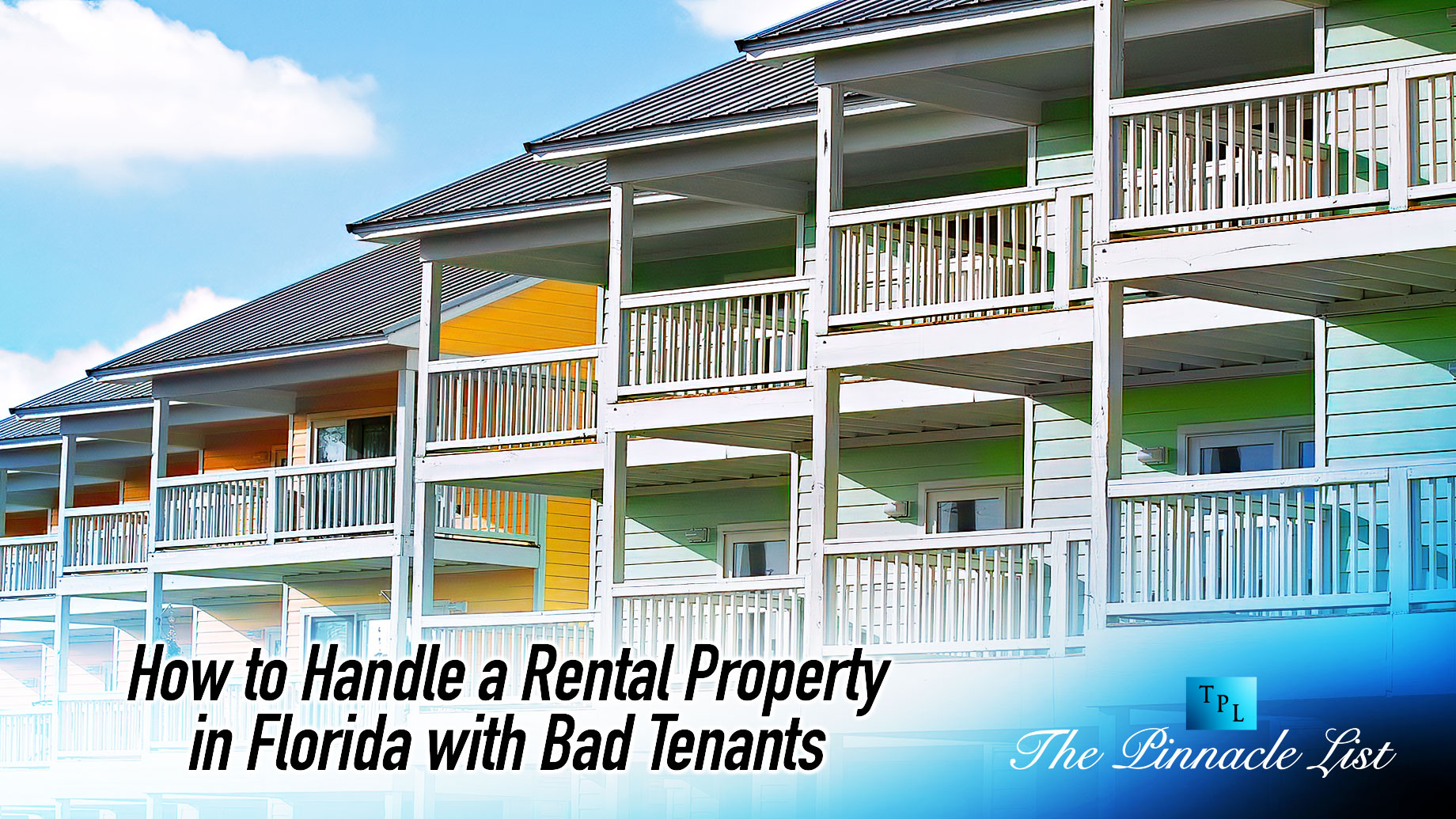
Owning a rental property in Florida has the potential for excellent returns, but it can also present challenges, particularly when tenants prove to be difficult. Dealing with problematic tenants is a common issue in the rental business. Knowing how to address these situations to protect the property and the owner’s interests is crucial. This article offers guidance on managing rental properties with difficult tenants in Florida.
For many new real estate investors, the appeal of purchasing a rental property lies in the prospect of creating wealth. However, they often overlook the costs and challenges associated with property ownership. One significant challenge is dealing with bad tenants. While an investment rental property can be a robust passive income source, this can be compromised with problematic tenants. As such, it’s vital to thoroughly screen potential tenants before allowing them to occupy the property. After all, significant effort and resources have gone into the property, and it’s only right to expect a positive return.
Understanding the Florida Landlord-Tenant Law
Before leasing out property, landlords should acquaint themselves with the Florida Landlord-Tenant Law, which stipulates both tenants’ and landlords’ rights and responsibilities. This law covers crucial aspects, including security deposits, rent payments, evictions, and property maintenance. Being informed about these rights and duties allows landlords to deal with problematic tenants legally and confidently.
It’s also imperative to have a written lease agreement with tenants. A lack of this can lead to complications during eviction processes and potentially higher eviction costs. For example, in Santa Rosa or Escambia County, Florida, eviction fees might be around $350 without the need for an attorney.
Eviction procedures will be elaborated on later in this article. It’s highlighted here to emphasize its significance in the context of rental properties and tenant management.
Effective Communication
Open and effective communication can significantly mitigate tenant issues. When faced with problematic tenants, landlords should engage them calmly and professionally. Organizing a discussion can help address concerns and seek solutions. Documenting all conversations and agreements is also essential to prevent potential disputes later on.
Being a responsible landlord establishes a standard of expectation with tenants. Promptly addressing property issues or repairs communicates the value placed on the property, which can encourage tenants to take good care of it. Moreover, it emphasizes the reciprocal relationship between tenant and landlord; just as the landlord fulfills their duties, the tenant should also meet their responsibilities, such as paying rent on time.
Seeking Mediation
For disputes that escalate, mediation might be a suitable approach for tentants problem solving. A mediator specializes in conflict resolution and can assist in reaching a consensus. They can be instrumental in landlord-tenant conflicts, helping both parties find common ground.
While mediation can be a valuable tool, effective communication and a balanced approach often prevent the need for such measures.
Initiating an Eviction Suit
There are instances where peaceful resolutions aren’t feasible. If a tenant repeatedly violates the lease agreement and remains unresponsive to resolution attempts, Florida law allows landlords to file for an eviction. The process is stringent, so engaging a legal expert can be beneficial. However, landlords must ensure they give the proper notice to tenants before initiating eviction proceedings, as detailed in the Florida Landlord-Tenant Law.
Engaging a Property Management Company
If property management becomes overwhelming, landlords might consider hiring a property management company. These professionals can oversee property affairs, manage tenant issues, collect rent, and source new tenants. Their legal and managerial expertise can significantly ease the process.
Conclusion
Managing problematic tenants can be taxing, but with the right strategies and understanding, it’s possible to sustain a profitable rental investment. Open communication, legal knowledge, and support from professionals such as mediators, lawyers, and property management firms can be invaluable. By employing these strategies, landlords can effectively manage their rental properties even with challenging tenants in Florida.